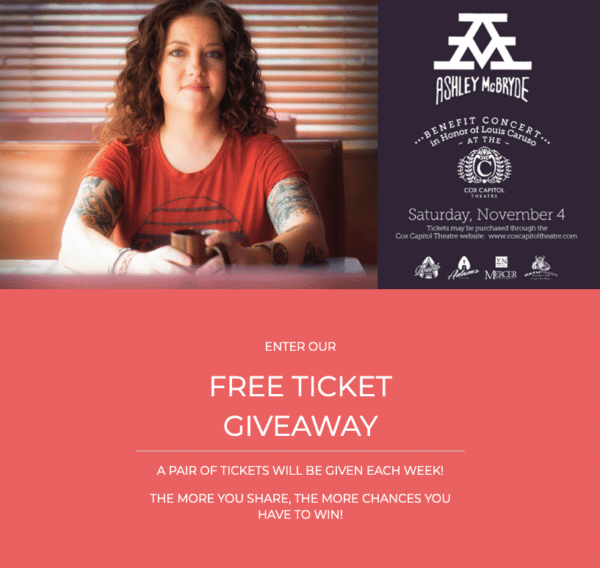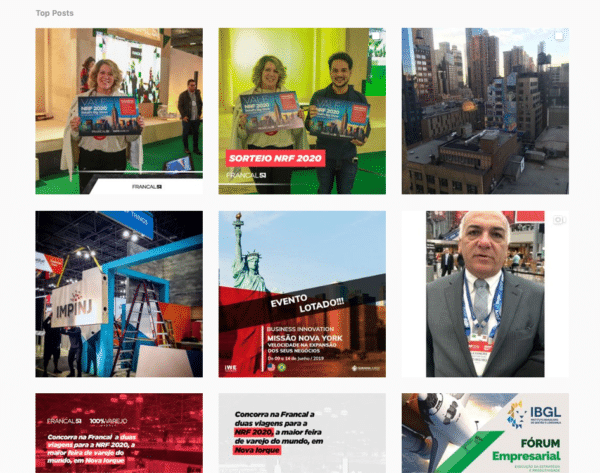Why Social Media Contests Could Dramatically Improve Your Event Marketing ROI
Discover the value of in-person events in your marketing mix and the benefits of incorporating contests into your event strategy.
Do in-person events play a critical role in your marketing mix?If not, then it might be time to re-think your strategy.
Research from EMI & Mosaic found that 65% of event attendees improved their understanding of a product or service from attending.
Event marketing is also considered the most effective form of content marketing, according to 75% of respondents surveyed by the Content Marketing Institute.
So, if you’re investing all of your marketing budget into digital-only channels - such as blogging, social media, Google ads, and social media advertising, you may be leaving considerable value on the table.
The problem with event marketing
Despite these statistics and the compelling rationale behind investing in event marketing, it comes with its flaws. The in-person nature of events means they require a significant amount of time dedication, resources, and lost time in the office. All of this effort can go to waste if you don’t approach events with a level of focus and discipline. In fact, most event attendees make very few meaningful business connections during an event.
For businesses, be they attendees, sponsors, exhibitors, or speakers, events can turn out to be an unfortunate waste of money if they are not handled in the right way.
Perhaps the biggest problem in the event space comes for the hosts. For those willing to take a chance on running an event of their own, the headache of registrations, attendance, in-event engagement, and delivering a return for sponsors, creates an uneasy level of stress. Running a successful event is far from a walk in the park. How, then, do you make the most of event marketing? Whether you’re an attendee, sponsor, speaker, or the host of the event, contests can be a great way to build meaningful connections with those involved and create long-term business relationships. Start with great event marketing. Then, you'll need a great promotion strategy. Let’s dive in...
Pre-event contests
Pre-event contests offer an excellent way for attendees to establish a preliminary connection which can be developed during the event. They also provide event organizers an opportunity to discover a larger group of attendees, increase registrations, and improve the attendance rate, by strengthening the emotional connection with an event.Why should event organizers use pre-event contests?
- By giving away event-related prizes, such as free/discounted tickets, or a VIP experience, pre-event contests help organizers discover more potential attendees. Below is an example of a free ticket giveaway for a concert:

An example of a pre-event contest.
- Engaging with event registrants, prior to the event, increases the likelihood of them attending.
- Establishing an event or contest hashtag before the event, and then promoting that hashtag during and after the event, creates a powerful feed of social media content and social proof related to the event. For example, the hashtag #CMWorld used to promote the Content Marketing World conference has over 12,000 tagged photos on Instagram alone:

#CMWorld on Instagram.
- Extending the event engagement between sponsors and attendees increases the perceived ROI for contributing businesses and makes them want to re-book for next time.
Why should event attendees get involved in pre-event contests?
- The most obvious reason event attendees benefit from participating in pre-event contests is that they can win prizes or perks that will improve their event experience.
- A not so obvious benefit of getting involved in pre-event contests for attendees is the opportunity to connect with other attendees. A key reason attendees leave without any meaningful connections is because the group event scenario is intimidating. If you can establish an initial connection with people, on social media, prior to the event, the in-person meeting becomes much easier.
Think about how you can leverage pre-event contests for your next event - regardless of whether you are the host or just an attendee.
In-event contests
If pre-event contests are designed to bring more people to an event, then in-event contests are trying to elevate the event experience once people turn up.Apart from the obvious desire to win something free, in-event contests help attendees enjoy the experience more and connect with sponsors and attendees they may not have met organically.For organizers, in-event contests are the money-ball for event engagement. Here’s why:
- They capture the attention of event participants for the duration of the event, with ongoing milestones, triggers, and encouragement to participate. For example, this could take shape as an event scavenger hunt which leads attendees to find clues at certain exhibitor stands.
- If the contests involve photo submissions and social media hashtags, they collate valuable social proof for the event in the form of photos, feedback, and commentary which organizers can use to market the event next time around.
- They add an element of fun for attendees. This is especially important if the event content is a little dry or technical. Lucky door prizes and sweepstakes can lighten the mood and have attendees drop their guard.
Want to increase engagement at your next event? Think about how you can participate in or launch a live contest.
Post-event contests for follow-up
Following up after an event is something which is far too often neglected by attendees, sponsors, and organizers alike. As you would know, the follow-up process in any business scenario is one of the most important elements of establishing an exchange of value.
To aid event attendees in this endeavor, and prolong the ‘good feeling’ they have about an event, extending an in-event contest for a period after the event, or starting a new campaign altogether, can be exactly what is needed.
For sponsors, post-event contests could be utilized to convert new prospects into customers. For organizers, they could be used to re-book sponsors or gather attendee testimonials, photos, or feedback as social proof.
For attendees, these contests are a place to reconnect with the people they met and extend the relationship, so it doesn’t simply get lost among 101 other priorities on their to-do list.Retail conference, NRF, for example, has already set up and started collating social proof for their 2020 conference under the hashtag #nrf2020. Running a contest with the event hashtag can significantly increase its use.

Using pre-event hashtags.Whatever your approach, a contest is an interesting way to hold yourself accountable to the follow-up process after an event.How will you incorporate contests into your event marketing strategy?
Try a ShortStack template to create your first contest fast and easily.
Get Started Today. No credit card required. Risk-free.
